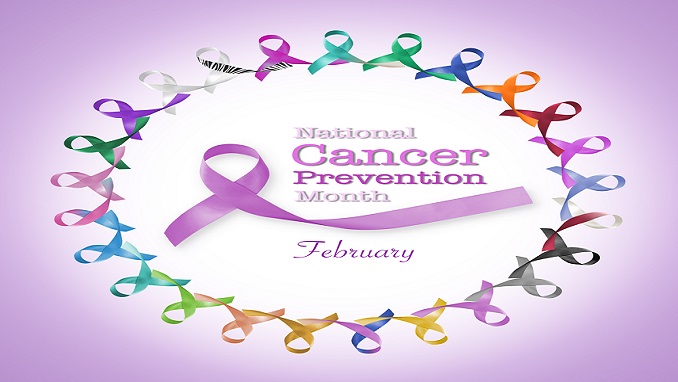Four out of 10 cancer diagnoses in the United States—about 750,000 cases in 2020—and nearly half of all cancer deaths in the country can be attributed to preventable causes, like smoking, obesity, physical inactivity, and excessive exposure to the sun, according to research by the American Association for Cancer Research (AACR).
With February being National Cancer Prevention Month, AACR is encouraging everyone to do their part toward prevention by reducing their cancer risk with healthier behavior and early screenings.
President Biden marked the month by relaunching his Cancer Moonshot, an initiative he first launched in 2016 when he was vice president. The relaunch is intended to “reduce the death rate from cancer by at least 50% over the next 25 years and improve the experience of people and their families living with and surviving cancer.”
While there is no certain way to prevent cancer, there are risk factors that increase the likelihood of the disease, and all of us can seek to avoid those risks: Avoid smoking and tobacco products, eat healthy and maintain a healthy weight by leading an active life and exercising and, while being active outside, make sure you always use sunscreen. Just keep in mind that 19% of all cancers are caused by smoking and 18% are caused by a combination of excess body weight, alcohol consumption, poor nutrition, and physical inactivity, as Cancer Network emphasizes.
To prevent cancer, know your family history
One of the best ways to improve our odds against cancer is with frequent screening. The American Cancer Society recommends: mammography to detect breast cancer; pap smears to screen for cervical cancer; colonoscopy to check for colorectal cancers; low dose computed tomography (LDCT) to detect lung cancer in current and former smokers; prostate cancer screenings for men; and annual checks with a dermatologist to help detect skin cancer in its earliest stages, when it is most treatable.
Given that around 5-10% of all cancers are inherited, knowing and understanding your family history can help both you and your physician to determine when you need to start screening or whether to consider genetic counseling.
Meanwhile, the AACR “is committed to advancing the science of cancer prevention” by working “with a wide range of partners in biomedical research to develop strategies and promising approaches to prevention, aiming to stop cancer before it starts.”
And the AACR Cancer Prevention Working Group provides “a forum for communication and collaboration among basic, translational, and clinical scientists, physicians, nurses, as well as practicing medical, surgical, and oncologists in academia, industry, and government.”




